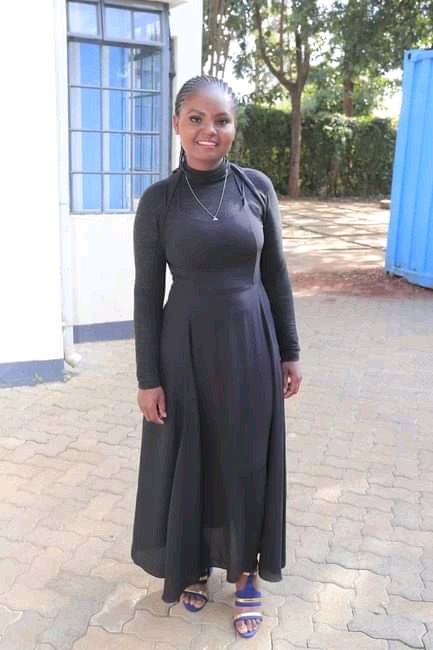
Hearing impaired, make a debut in the Kenyan political scene
By Njeri Kimani
Esther Wanjiru narrates her experience in the last Kenyan general elections. Being a hard of hearing woman, Ms Wanjiru faced a series of challenges, the worst being communication barrier with the electorate.
Being a Kenyan woman politician is hard. Women candidates are harassed, intimidated, and insulted on online and offline platforms pushing some to drop their campaigns. It is even harder for the hard-to-hear candidates, who are slowly dipping their feet in the murky waters.
Kenya has a huge population of deaf people. According to the Kenya National Population Census 2019, there are 153,381 Deaf people in Kenya aged above 5 years. The report further shows that most of the Deaf people (129,518) are in rural areas compared to urban areas (23,843). The World Health Organization estimates by 2050 over 700 million people – or 1 in every 10 people – will have disabling hearing loss. With the rising numbers, the community has seen a rise in the people who are seeking to represent them in the county and national assembly. However, it has been a roller coaster for some of the politicians who sought to cast their net in this field.
Esther Wanjiru, who vied for the county assembly seat in Lanet Umoja, Nakuru, says facing her counterparts who are hearing and stand a better chance with the voters was not an easy thing.
“However, my determination to be the first member of the county assembly to be hearing impaired and representing others who are equally impaired is what pushed me into politics. I wanted to bring change from inside the government and to ensure that our voices were heard, “she cited during an interview.
Ms. Wanjiru admits that convincing the public that she was the best fit for the seat was not an easy feat. She cited that most Kenyans are skeptical about being represented by a person who is hearing impaired. “They feel that I will not be able to air their grievances well, which I find ironic,” she added.
The communication barrier was one of her biggest challenges in the campaigns heading to the 2022 general elections, especially in the absence of a sign language interpreter. She admitted she could not be able to sell her agendas to the public.
“The cost that came with having a sign language interpreter daily for me, was a huge challenge. I could not afford one, no matter how much I tried. I hence could not articulate issues well while I was on the field,” she added.
That notwithstanding she made her debut into the political scene wanting to advocate for the rights of the deaf community which she feels has been neglected for a long time. She pointed out that while the deaf community’s poverty levels keep going down, jobs are not available for the community. The only people that she manages to convince were her fellow hearing-impaired members, who form a very small portion of the voters.
She feels that representation of her community in matters of politics and being part of decisions making is so small.
“Something should be done to increase this, and it will take accepting and involving us in political decisions that will help sort this out,” she added.
Lisa* [1]opted to vie for a seat in Nakuru but was discouraged by the bureaucracy in the nomination processes. She admitted that there was a lot of demand from the Independent Election and Boundaries Commission (IEBC) that saw many deaf people already cut off.
“Even getting nomination by a political party is quite hard. In some cases, party officials demand kickbacks and we know that some of us cannot even afford a day-to-day meal. Initially, the demand that one needs a KCSE certificate to qualify for that position threw most deaf people out as many just did their primary level education before enrolling for a technical training course. We however feel that some of the rules have now been relaxed and 2027 might be easier,” she added.
Ms. Lisa also pointed out that there was an assumption that deaf candidates were sponsored by INGOs. Lisa also points out many residents also kept asking for flour or cash incentives, which they could not afford.
“Money still talks when it comes to elections,” she added.
Martin Njoroge, the founder of Horizon Sign Language Institute, laments that elections are not favoring the deaf.
“Even basic information about campaigns was not available to people who wanted to vie for different posts, which is a challenge. In some cases, the deaf only knew that there were nominations after they had passed since there was no one to reach out to them and tell them about what was going on in the political circles,” he added.
Mr. Njoroge lamented that this was a common norm especially when it comes to communication from the government, where in most cases they receive information on very short notice.
“We saw a repeat of the lack of proper communication during the nominations and elections as we have seen in government spaces like law courts, the county assembly, and hospitals where there are no sign language interpreters who communicate what is happening. We end up missing a lot,” he added.
Antony Kamau, the current Nakuru East Ward Member of the county assembly, advocates for an all-inclusive county assembly which he says will encompass a representation of people living with a disability. Although Mr. Kamau recognizes the possibility of being unable to relate with members of the deaf community he says a lot needs to be done in terms of advocacy.
Mr. Kamau says he is open to working with the hearing impaired and also highlights the need for Sign Language interpreters in government offices to ease the communication barrier.
“The members of the hearing-impaired community are also part of us and their voice matter too. Having them in government will play a major role in ensuring that their needs are met. Most of them rarely get any information about what is going on even at the ward level. When maybe bursaries are being distributed, they get the information late and thus not getting the bursary,” he added.
“A united front and lobbying together of people living with disability would put them in a better place for them to be able to convince the public that they should be voted in to represent them in the government offices,” according to Robbin Omeka, the CEO of Anika Initiative and a democracy and governance experts.
He pointed out that in Kenya elections the public is capable of dismissing a good leader just because of something small like a tribe or being abled differently among other things. He pointed out that it will be an uphill task for deaf politicians to convince people to vote for them, especially if the disability card is the only thing they have to offer.
“A deaf politician will stand a chance being voted if they have a great campaign team and also the policy and agenda clearly stated. Voter’s mindsets need to be changed in viewing and judging someone because of being abled differently. However, having an identity as a deaf politician is already a disservice. They need to show that they are bringing more to the table. I feel like it will also push other people with disability to start arguments like “Vote for me because I am blind,” which will take us way back in choosing quality leaders. It is about what one is offering and not what is different about them. In an already disenfranchised world, it would be used against them,” he added.
Kinyanjui Kirega, a young voter and a Human Rights Defender based in Nakuru however commended the hearing-impaired politician, citing that it takes a lot of courage to overlook “obstacles” and go for their dream.
“The constitution allows anyone to vie for any seat in Kenya as long as they meet the threshold and being abled differently does not matter. Many abled citizens do not even have the guts to go for what they want, and seeing someone go after their dreams is very commendable,” he pointed out.
“Civic and election education, a very critical tool in ensuring that the deaf get to the polls, is lacking. There is a need for back-to-back training especially on voting rights. The civil society should make it deliberate to train specifically the deaf community on their civic duty,” said Kelvin Maina, a program officer for Art for Rights, a Nakuru-based organization that advocates for human rights through the use of arts.
Mr. Maina pointed out that the deaf are even discriminated against by other persons living with disability, and the general public.
“They are not viewed as “disabled enough. “The argument has always been that they dress well and they can walk and look like they are very comfortable. These are the same measures that are seen during elections and campaigns, where it is even hard for the disabled to elect them. It hence becomes very hard especially when they are not putting up a united front,” added during an interview.
Grace Wangui, a resident in Limuru, said that they cannot vote for a person who is hearing impaired, she says that voting for a person who can speak and expecting them to speak on their behalf does not make sense to her.
“It is an added burden as one has to get interpreters, and also one has to use extra materials like papers to communicate what they want. The deaf cannot hear or talk relating to them will be hard for members of the public, especially the ones they are representing. Unless the whole community is taught sign language, it would be tough for them to articulate our issues and also will squeeze the budgets. I am not saying that they should not go after their dreams but I am just cautious that it will have a bigger strain on the taxpayers,” she added.
The Kenya Sign Language Bill 2021 advocates for the representation of the hard in hearing in the county and national assembly proceedings.
[1] Names have been changed to protect identity.
This story is part of the AWiM/Luminate Young Women in Politics Programme.






















Recent Comments